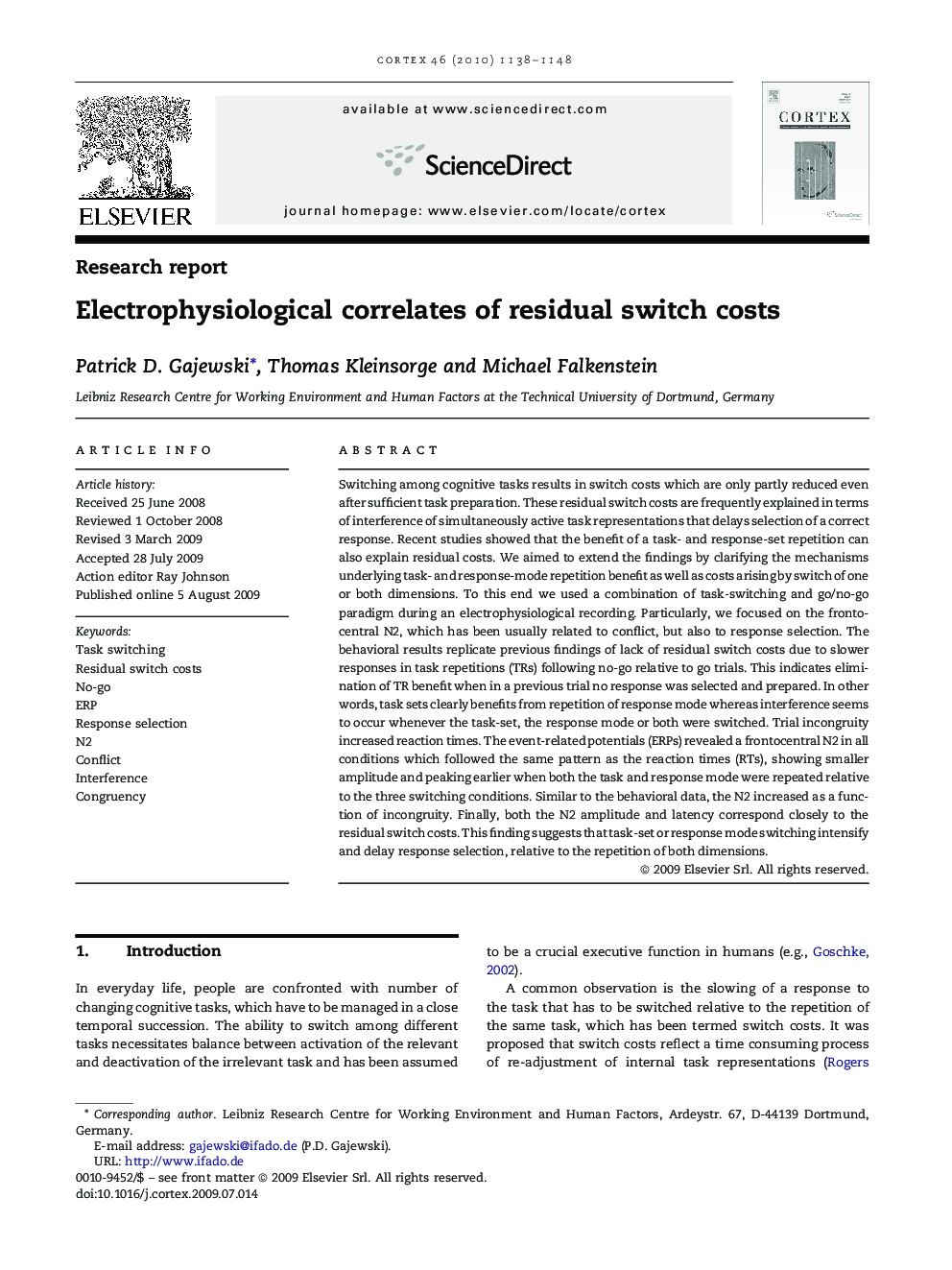| Article ID | Journal | Published Year | Pages | File Type |
|---|---|---|---|---|
| 942515 | Cortex | 2010 | 11 Pages |
Switching among cognitive tasks results in switch costs which are only partly reduced even after sufficient task preparation. These residual switch costs are frequently explained in terms of interference of simultaneously active task representations that delays selection of a correct response. Recent studies showed that the benefit of a task- and response-set repetition can also explain residual costs. We aimed to extend the findings by clarifying the mechanisms underlying task- and response-mode repetition benefit as well as costs arising by switch of one or both dimensions. To this end we used a combination of task-switching and go/no-go paradigm during an electrophysiological recording. Particularly, we focused on the frontocentral N2, which has been usually related to conflict, but also to response selection. The behavioral results replicate previous findings of lack of residual switch costs due to slower responses in task repetitions (TRs) following no-go relative to go trials. This indicates elimination of TR benefit when in a previous trial no response was selected and prepared. In other words, task sets clearly benefits from repetition of response mode whereas interference seems to occur whenever the task-set, the response mode or both were switched. Trial incongruity increased reaction times. The event-related potentials (ERPs) revealed a frontocentral N2 in all conditions which followed the same pattern as the reaction times (RTs), showing smaller amplitude and peaking earlier when both the task and response mode were repeated relative to the three switching conditions. Similar to the behavioral data, the N2 increased as a function of incongruity. Finally, both the N2 amplitude and latency correspond closely to the residual switch costs. This finding suggests that task-set or response mode switching intensify and delay response selection, relative to the repetition of both dimensions.
